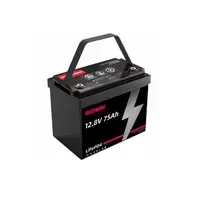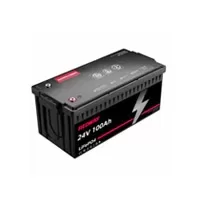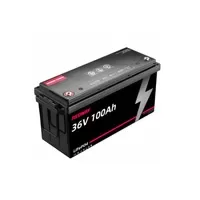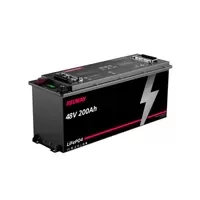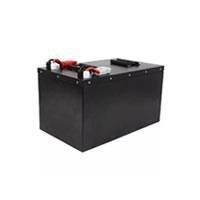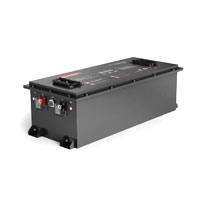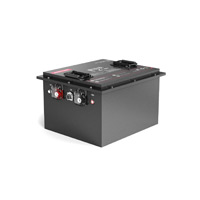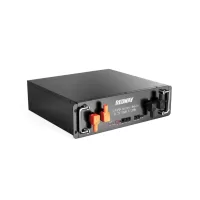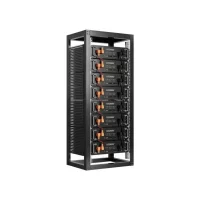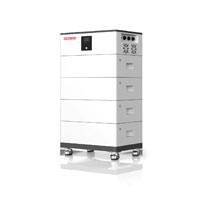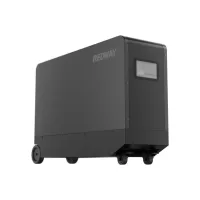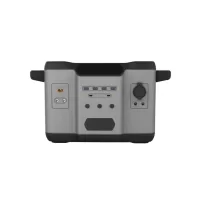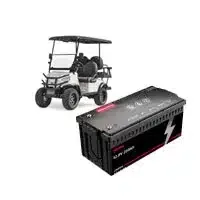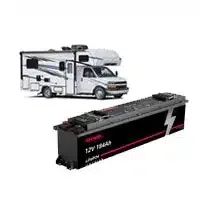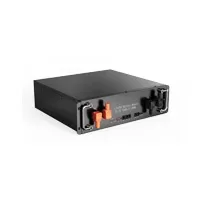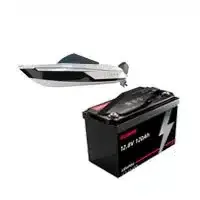Need a reliable power source for your devices? Enter the versatile 12V battery! Whether for your car, boat, or backup power at home, it’s a crucial energy provider. In this post, we’ll explore how these batteries work, their pros and cons, and offer tips on choosing the right one for your needs. Let’s dive into the world of 12V batteries!
How do 12V batteries work?
Understanding how 12V batteries work is crucial for anyone considering them for their power needs. The key lies in grasping the fundamental principles of electrochemistry.
- Electrochemical Core:
- Basic Operation: A 12V battery operates through a chemical reaction involving two electrodes and an electrolyte solution.
- Electron Flow: Electrons flow from the negatively charged anode to the positively charged cathode when connected to a circuit, creating an electrical current.
- Chemical Reactions Inside:
- Ionic Movement: Chemical reactions occur inside the battery as ions move between electrodes through the electrolyte, completing the circuit and facilitating continuous electron flow.
- Energy Generation: This process generates energy that can power various devices, showcasing the versatility of 12V batteries.
- Considerations for Choosing:
- Diverse Applications: 12V batteries find use in various applications, from small electronic devices to larger systems like cars and RVs.
- Battery Disparities: Not all 12V batteries are the same; factors like capacity, discharge rate, and maintenance requirements can vary based on the battery technology employed.
- Smart Selection: To choose the right 12V battery, consider factors such as required capacity, voltage stability, rechargeability, or disposability based on your specific needs and sustainability goals.
In summary, comprehending the electrochemical principles at play within 12V batteries’ cells is essential when considering them for your power requirements. This knowledge empowers you to make informed choices among the various types available in the market today.
Benefits of using a 12V battery
Selecting a power source often leads to the reliability of a 12V battery, and rightly so. Its popularity is underpinned by a multitude of advantages that cater to diverse needs.
- Versatility Across Applications:
- All-in-One Power: A 12V battery suits a range of needs, from cars and boats to RVs and home appliances, providing convenient portable power wherever you go.
- Affordability and Budget-Friendliness:
- Cost-Effective: In comparison to alternatives like lithium-ion or deep cycle batteries, 12V batteries are budget-friendly, making them an economical choice for those seeking reliable power without a hefty price tag.
- Ease of Maintenance and Replacement:
- Longevity and Durability: 12V batteries boast a long lifespan and resilience to frequent charging cycles, minimizing maintenance hassles and long-term expenses. Replacement is straightforward when needed.
- Consistent Performance:
- Stable Voltage Output: Ensuring devices and vehicles operate reliably, 12V batteries maintain a consistent voltage output throughout their discharge cycle, crucial for industries requiring uninterrupted power.
- Readily Available Replacement Parts:
- Convenient Access: Thanks to their widespread use, replacement parts and accessories for 12V batteries are easily found at automotive or electronics stores, enhancing convenience for users in need of replacements or upgrades.
In summary, the multitude of benefits, including versatility, affordability, ease of maintenance, consistent performance, and readily available replacement parts, positions the 12V battery as an excellent and practical choice for various power needs.
Drawbacks of using a 12V battery
While 12V batteries offer numerous advantages, it’s crucial to be aware of potential drawbacks before determining their suitability for your needs.
- Limited Capacity for High-Power Demands:
- Not Ideal for Heavy Use: The main drawback lies in the limited capacity of 12V batteries, making them less effective for high-power demands. Running multiple appliances simultaneously or operating heavy machinery may result in shorter run times.
- Restricted Range of Applications:
- Not Versatile for All Needs: While commonly used in automotive and small electronics, 12V batteries may not be suitable for specialized or industrial applications requiring higher voltages, limiting their overall range of uses.
- Charging Time Concerns:
- Potentially Longer Charging Times: Due to lower voltage output, 12V batteries may take longer to charge compared to higher-voltage options. This factor could lead to increased downtime in situations where quick recharging is essential.
- Lifespan and Durability Limitations:
- Potential for Frequent Replacement: Despite recent advancements, the overall lifespan and durability of some 12V batteries may still be limiting factors. Depending on usage and maintenance, they might require more frequent replacement than other types.
In conclusion, while 12V batteries may be suitable for certain scenarios like camping or powering small devices during outages, it’s essential to carefully assess your specific requirements and weigh the pros and cons before determining if they meet your needs effectively.
Factors to consider when choosing a 12V battery
Choosing the right 12V battery involves considering several crucial factors to meet your specific needs. Let’s explore the key aspects to ensure you make an informed decision.
- Capacity Assessment:
- Evaluate Power Needs: Start by assessing the capacity of the battery, determining how much energy it can store and deliver. Opt for higher capacity if you require longer device run times on a single charge, aligning with your power needs.
- Battery Type Consideration:
- Assess Type Options: Different 12V battery types, including lead-acid, lithium-ion, and gel batteries, come with unique advantages and disadvantages. Consider factors such as performance, lifespan, maintenance, and cost to choose the type that best suits your requirements.
- Size and Weight for Practicality:
- Prioritize Portability: Factor in the size and weight of the battery, especially if you need a portable solution or have limited installation space. Opting for a compact and lightweight 12V battery ensures practicality and ease of use in various applications.
In conclusion, considering the capacity, type, size, and weight of a 12V battery is essential for making a well-informed choice that aligns with your specific power needs and practical considerations.
Common misconceptions about 12V batteries
Misconceptions about 12V batteries can lead to confusion. Let’s debunk some common myths to provide clarity when it comes to understanding these power sources.
- Battery Type Variety:
- Not All the Same: Contrary to the misconception that all 12V batteries are identical, there are different types like lead-acid, lithium-ion, and gel cell batteries, each with unique characteristics and applications. Understanding these differences is crucial for selecting the right battery for specific needs.
- Versatility and Lifespan:
- Beyond Small Devices: While commonly used in smaller vehicles, 12V batteries are versatile enough to power larger systems like solar panels or backup power supplies. The myth about their short lifespan compared to higher voltage options is debunked by considering factors like usage patterns, maintenance, and environmental conditions.
- Charging Misconceptions:
- Modern Charging Technology: Contrary to the belief that leaving 12V batteries constantly plugged in will lead to overcharging, modern chargers incorporate safeguards to prevent such issues. Understanding these charging mechanisms is essential for optimizing battery performance and longevity.
- Capacity Capabilities:
- More Than Voltage: Dispel the misconception about capacity limitations based on voltage alone. Different technologies enable 12V batteries to offer substantial power storage capacities, providing reliable energy for extended periods without compromising safety or reliability standards.
By addressing these misconceptions, users can make well-informed decisions when choosing and using 12V batteries for various applications.


